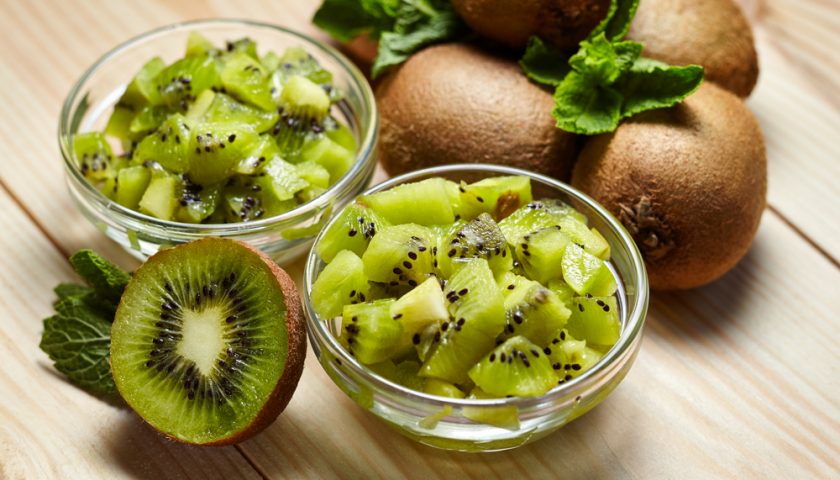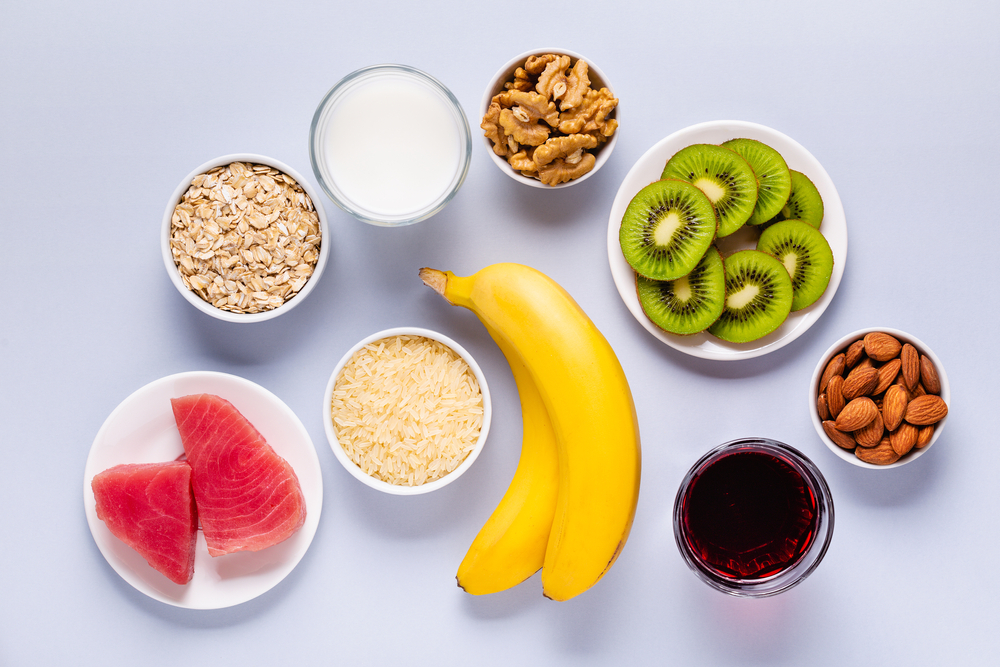Whether it’s a jolt after a cup of coffee or drowsiness after a heavy dinner, you may have personally experienced how food and drinks can alter your energy and alertness.
It’s a fast-paced world, and our jobs and other stressors usually keep us up at night. A time comes when this sleep disturbance turns into insomnia.
But, no worries!! You can improve your sleep by following some tips. There are some best foods that help you sleep better at night. Apart from that, you can follow a yoga and exercise regimen to improve your sleep quality.
But today, we are here to talk about foods that help you sleep better. First, let’s understand the importance of sleep and side effects of insomnia.
Table of Contents
Why is a Good Night’s Sleep Important for You?
Isn’t getting a good night’s sleep crucial?
A good night’s sleep not only refreshes us, but also prepares us to tackle the next day with full energy and zeal.
Isn’t it true, though, that we get fatigued but still have trouble falling asleep?
We get fatigued, angry, and exhausted as a result of this lack of sleep.
What Effect Does Insomnia Have Upon You?
Prolonged insomnia results in chronic illnesses. It affects the brain, the digestive system and the overall immunity of the person.
It’s important to treat your insomnia as soon as possible, lest it turns into a chronic life-long condition.
Foods that Help You Sleep: Choose Your Favorite
Here is a list of some of the best foods that may help you sleep better and improve your sleep quality if you start taking them on a daily basis:

Kiwi Fruit
Does kiwi help you sleep?
Is it the best food for insomnia?
The kiwi or kiwifruit is a small, oval-shaped fruit that is commonly associated with New Zealand. Green and gold kiwis are also available, but green kiwis are more plentiful.
Vitamins C and E, as well as potassium and folate, are all present in kiwifruit.
According to studies, eating kiwi can help you sleep better. People who ate two kiwis one hour before bedtime fell asleep faster, slept longer, and had improved sleep quality.
It’s unclear why kiwis may aid sleep, but experts suspect it has something to do with their antioxidant characteristics, ability to resolve folate deficiencies, and/or high serotonin levels.
Chamomile Tea
Many people believe that a steaming cup of tea keeps you awake like an owl.
However, there are numerous advantages to replacing your ordinary teacup with a cup of chamomile tea.
Regular chamomile tea enhances the immune system, reduces anxiety, and depression, all of which are common causes of sleep disturbances.
Apigenin is an antioxidant found in chamomile tea. This antioxidant binds to brain receptors that promote sleep and prevent insomnia. If taken before bedtime, his herbal tea aids in nerve relaxation.
Watermelons
These vibrant and nutrient-dense watermelons are truly a blessing in disguise.
Due to its greater fiber content and volume, a cup of diced watermelon chunks right before bedtime helps you stay hydrated throughout the night. It also keeps post-dinner hunger pangs at bay.
If you are well hydrated before bed, your body does not wake you up in the middle of the night to quench your thirst, and you sleep soundly.
Because of their high water content, you should consume watermelons in moderation because they may wake you up in the middle of the night to go to the bathroom.
Pistachios
Pistachios, which are high in key minerals like vitamin B6, proteins, and magnesium, can aid sleep.
Eat them in moderation because anything high in calories can keep you awake rather than help you sleep.
Walnuts
Most of us are familiar with this brainy nut and its benefits.
But did you know that walnuts can help you sleep better by controlling the sleep hormone Melatonin?
Walnuts also contribute to the supply of ALA, an omega-3 fatty acid that the body converts to DHA. This DHA boosts the creation of serotonin, a brain chemical that aids sleep.
White Rice
If you eat a dish of white rice, you will feel lethargic and lazy.
It is one of the best foods for insomnia. White rice has a high glucose content but little fiber. It also has a high glycemic index, which is a measurement of how quickly a food raises blood sugar levels.
Foods with a high glycemic index, when ingested a few hours before bedtime, improve sleep quality in studies.
Bananas
Bananas are high in magnesium and contain the amino acid tryptophan. Both of them contribute to a restful night’s sleep!
Bananas are high in potassium, which acts as a muscular and nerve relaxant, in addition to magnesium.
Dark Chocolate
You may wonder ‘can chocolate cause insomnia’?
Actually it’s quite the opposite. You can consume dark chocolate at any time of day!
This tempting delicacy not only serves to enhance serotonin levels, but it also helps to calm both the mind and the body!
Almonds
Everyone is aware of the health benefits of almonds! Almonds are high in magnesium and packed with beneficial minerals.
Magnesium is proven to help persons who suffer from insomnia. It also aids in the regulation of the stress hormone cortisol, which is known to impair sleep.
So, the next time you’re in a late-night slump, a handful of almonds would be a good decision.
Honey
Glucose in honey lowers levels of orexin, a neurotransmitter in the brain that makes you more alert. Honey will put that alertness in reverse.
Eggs
Eggs are popular in the morning, but they also can make you sleepy due to the component tryptophan. Try having some breakfast for supper and see what happens.
Takeaway!!
It is critical to get enough sleep for your health.
Several foods and beverages may be beneficial. This is because they include hormones and chemicals that regulate sleep, such as melatonin and serotonin.
It’s ideal to take sleep-inducing meals and beverages 2–3 hours before bedtime to get the most out of them. You should also avoid foods that cause sleep disturbances before bedtime.
Eating right before bedtime might create stomach problems, such as acid reflux.
If you are having severe sleep problems, make sure to consult a sleep medication specialist to have your problem addressed.
